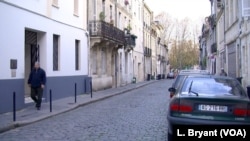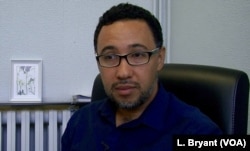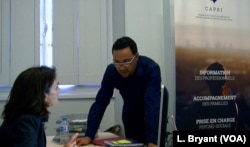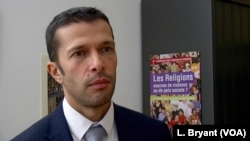This iconic wine capital seems an unlikely ground zero in France’s battle against militant Islam. Yet, down a narrow street off the city’s center, an experiment is under way to bring at-risk youngsters back from the edge.
A partnership, between Bordeaux’s city hall and the local Muslim federation, is one of dozens of initiatives springing up around France to tackle a daunting challenge: how to fight the powerful lure of radical Islam.
The question is critical for France, western Europe’s biggest exporter of jihadists and the target of three major, and largely home-grown terrorist attacks in two years. If it works, some see Bordeaux’s holistic and inclusive approach to preventing radicalization as a model for other French cities.
With the Islamic State group weakened in Iraq and Syria, and threats of more violence at home, there is all the more urgency in finding solutions. Already, hundreds of European jihadists have returned. Counterterrorism experts say hundreds more are expected to follow, posing major security risks.
“The European intelligence system is not accustomed to dealing with so many radicalized people,” says Paris-based sociologist and jihadist expert Farhad Khosrokhavar. “We need to invent a new way of dealing with this sort of problem.”
New approach
While countries like Britain, Denmark and Germany have long been involved in deradicalization efforts, France is a relative newcomer. And until recently, French authorities have mostly used a punitive approach.
Today, that is beginning to change. A few months ago, the government earmarked more than $315 million over three years for deradicalization efforts that include opening special voluntary centers around the country.
The CAPRI program in Bordeaux, bringing together a small group of therapists, psychiatrists, legal experts and imams, is considered the first to offer an interdisciplinary approach in fighting radicalization.
“What we can say today is there are no miracle recipes,” says Bordeaux Deputy Mayor Marik Fetouh, who is also CAPRI’s spokesman. “Radicalization is a complex phenomenon.”
Of the 35 youngsters now enrolled, roughly 40 percent are women. A significant number are converts or ‘born agains’ from Muslim families that aren’t particularly religious. The average age is 22.
“Each case is different, each history and trajectory is different,” says imam Fouad Saanadi. “My role isn't to give them the ‘good’ Islam, but to bring critical thinking and a serene approach to religion.”
Case-by-case
Saanadi gathers with the rest of the team to analyze each new case; but often, he says, religion plays a secondary role. A number of youngsters have psychological problems; others have troubled backgrounds.
“Radicalization is just a symptom of a world that is complex and globalized,” Saanadi says. “We have generations that are very fragile. Today, it’s Islamic State that recruits. Tomorrow it could be another ideology.”
Still, today’s "ideology" has managed to seduce hundreds of French youngsters. Authorities here classify some 15,000 people as extremists and possible security threats. Another 700 French jihadists are still fighting in Iraq and Syria, and 1,350 suspected radicals are in French prisons, according to government estimates, including nearly 300 with direct ties to terrorist networks.
The state's law-and-order response has not proven effective, critics say.
A fledgling effort to create special deradicalization units in select jails was shuttered in October, with officials judging it actually risked increasing extremism rather than fighting it. A new initiative is under way that aims to weed out and separate the most hardened radicals from the broader prison population.
In one possible sign of changing times, France has opened the first of roughly a dozen deradicalization centers planned to be rolled out across the country in the coming months. The initiative is voluntary and experts say it is too early to judge its effectiveness.
Some fear the new focus on deradicalization is producing some dubious start-ups. So far, roughly 80 initiatives have sprung up across the country, according to French media reports, with varying degrees of credibility and success.
“It’s becoming a market,” says Tareq Oubrou, the main imam of Bordeaux, who is part of the CAPRI initiative. “Everyone is becoming a deradicalization specialist in two seconds.”
More fundamentally, some say, France needs to rethink its staunchly secular views and conflicted relationship with Islam that have fed clashes over issues like the headscarf and burkini, and shaped the way it fights extremism.
“My guess is that if you want to have an efficient way in dealing with radicalization in terms of jihadism, you have to introduce — plainly, obviously, publicly — religion,” says sociologist Khosrokhavar, who criticizes many initiatives for solely treating the psychological aspects of radicalization and not the ideological ones.
“It is in the name of religion that they have become radicalized," he adds. "They identify with this radical version of Islam, so you cannot avoid it.”
In Bordeaux, CAPRI members view the program’s inclusive approach to dealing with radicalization as a strength.
“For the youngsters and the families, the fact we’re doing this with the Muslim community is very positive,” Deputy Mayor Fetouh says. “It shows we’re not mixing up Islam and radicalization. And often, the theologian serves as a mediator to create links between families and CAPRI.”
A possible model
On a recent morning, officials from Strasbourg and Toulouse counted among the latest delegations visiting the program’s offices. The program has sparked growing interest on the part of other municipalities.
“We’re very solicited, and we’re asked how to do CAPRI elsewhere,” Fetouh says. “But it’s not necessarily easily duplicated.”










